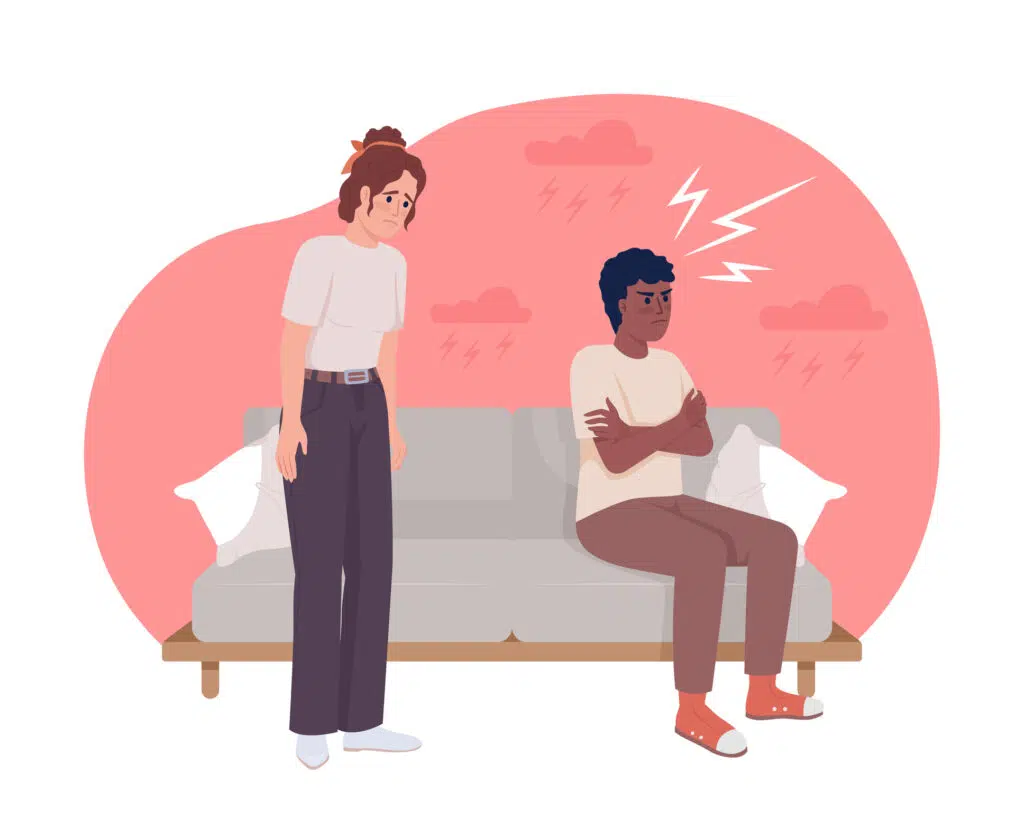Understanding Impostor Syndrome: Breaking Free from Self-Doubt

Do you ever feel utterly incompetent and unqualified, yet you’re in a position where you have all the experience and knowledge to perform well? It feels like everyone else knows exactly what they are doing, but you just don’t belong. Imposter syndrome can make you feel like a fraud with no confidence in your abilities. You’re not alone; so many people feel like this. The good news is that you can break free from imposter syndrome and overcome self-doubt; here’s how.
What Is Impostor Syndrome And How Does It Affect You?
Imposter syndrome, also known as imposter phenomenon, occurs when someone doubts their abilities, feels like a fraud, and thinks they don’t belong. Despite excelling in certain areas, individuals feel like they aren’t good enough and constantly have self-doubt. They worry that it’s just a matter of time until they are exposed for who they really are. Although feelings of self-doubt can affect all parts of life, imposter syndrome is most commonly associated with the workplace.
For example, you get a new job in a higher position with the experience, knowledge, and skills to be great, but you’re waiting for your new boss to find out they made a mistake hiring you. Anxiety and insecurity are all part of imposter syndrome, with feelings of complete inadequacy.
While imposter syndrome can make you feel like a failure, you’re not alone. The truth is you’re not a fraud or a failure.
One survey found that three in five workers experience imposter syndrome. British researchers polled 4,000 adults and found that women are more likely than men to experience imposter syndrome in the workplace.
A study from KPMG found that 75% of female executives have experienced imposter syndrome at some point in their careers. Respondents say they believe that women in corporate America commonly experience it.
Although it may look like you have it together to the rest of the world, imposter syndrome can affect multiple aspects of your life. Anxiety can stop you from growing in your career. Imposter syndrome can lead to feelings of dread, shame, and confidence issues. The reality is that when imposter syndrome is left to wreak havoc, it can impact your career, personal relationships, and job satisfaction.
Signs and Symptoms of Impostor Syndrome
Despite having success or skills, someone with imposter syndrome feels totally out of place. Many successful business leaders have spoken out about their experience with imposter syndrome. Often, high performers seek therapy as they are at risk of burnout and imposter syndrome.
Signs of imposter syndrome include:
- Downplaying achievements
- Fear of failure
- Anxiety
- Self-doubt
- Feelings of inadequacy
- No trust in your own abilities
Someone with imposter syndrome could think the following:
- I’m not good enough
- I’m a fraud, and I shouldn’t be here
- What if they find out I don’t know enough
What Factors Contribute To Impostor Syndrome?
It’s difficult to say the root cause of imposter syndrome, but research points to culture, environment, and family dynamics playing a role. Initial studies in the 70s found that early family dynamics and gender contributed to imposter syndrome, but we now know that imposter syndrome can affect all genders and backgrounds.
Specific personality traits have been linked to a higher chance of experiencing imposter syndrome like:
- Perfectionism – you think everything needs to be perfect, avoid asking for help, and put a lot of pressure on yourself to be perfect.
- Low self-efficacy – these people have little belief in themselves to succeed and see difficult tasks as threats to avoid.
- Neuroticism – a personality trait where you’re more disposed to anxiety, depression, and negative feelings.
6 Tips for Overcoming Impostor Syndrome and Building Self-Confidence
The first step in overcoming imposter syndrome is recognizing the symptoms. When you realize that you are experiencing imposter syndrome, you can begin to understand its impact on you and start to find ways to manage it and reduce its effect on your well-being.
- Self-Compassion
Don’t be so hard on yourself. No one is an expert in their job the first day. While you can be brilliant and have many skills that make you incredible at work, be kind to yourself. Set realistic milestones and goals. Accepting how you feel and knowing that you’re not alone can be very helpful in combating imposter syndrome.
- Re-Frame Failure
Failure is an opportunity for growth; it’s a big teaching moment. Often, the most successful people have faced massive failures before finding success. Fear of failure is a big part of imposter syndrome. If you can re-frame your mindset surrounding failure, it can help you learn and move forward. Don’t beat yourself up, but adapt and learn.
- Practice Positive Self-Talk
Self-talk is that voice inside your head. Instead of saying, “I’m not good enough,” try saying, “I have self-worth and deserve to be here.” Essentially, you’re trying to battle self-doubt and practice positive self-talk to train your mindset and adopt a more positive outlook.
- Celebrate Your Wins
Celebrating your successes can be a powerful tool for addressing imposter syndrome. Whether dealing with imposter syndrome or not, recognizing your achievements can do wonders for self-confidence and create positive memories. Celebrating milestones can also help you retain momentum and work towards your goals.
- Seek Support And Mentorship
Whether you’re experiencing low self-esteem issues, self-doubt at work, or going through a tough transition in life, seeking support can help. Talking to a therapist about how you feel can help you realize you’re not alone. Therapy can give you a reality check as you work through your thoughts and feelings. A therapist can help you develop positive coping methods to find ways to believe in yourself and own your achievements. Working with a counselor in a safe space can help you to accept how you feel and gradually improve your self-esteem and self-confidence.
- Let Go Of Perfectionism
Typically, perfectionist tendencies feed imposter syndrome. Letting go of perfectionism is important in overcoming imposter syndrome. The reality is that nothing is perfect. When the only acceptable outcome is perfection, you set yourself up for a loss. If you don’t achieve that perfect goal, you feel shame and failure. While striving for perfection can feel like the right goal, it’s often unrealistic, meaning you end up feeling even more like a fraud when you can’t achieve that goal.
Embracing Your Worth and Conquering Impostor Syndrome
Imposter syndrome can feel persistent and unforgiving. Despite proven evidence of your success, skill, experience, and knowledge, you still feel like a fraud. Accept that no one is perfect, and start to share how you feel with those around you.
It’s easy to think you are the only one feeling this way, but many people hide imposter syndrome. Work environments that are close-minded, cut-throat, and put extreme value on external achievements can make imposter syndrome worse.
Breaking out of the cycle of imposter syndrome and overcoming self-doubt takes time. It’s not something that happens overnight. But with consistency and practice, you can develop a more positive mindset, learn to embrace your self-worth, and move forward in your work and personal life.
If you’re struggling with self-doubt and imposter syndrome, book an appointment online with one of our expert self-esteem therapists. We have offices in most major cities, including Boston and Portland.

How to Move On After a Friendship Breakup
Friendship breakups can sting just as much as a romantic breakup. After all, you’re experiencing a loss of shared history and an understanding of each other that can leave you feeling lonely and isolated. Not all friendships are forever, but moving on from the loss of a friendship does take time and some self-compassion.

Signs You’re in a Toxic Relationship
A toxic relationship can chip away at your well-being and happiness. Toxic partners can be manipulative and charming, making it difficult to recognize the signs that you’re in a toxic relationship. You deserve to be in a supportive and healthy relationship.

10 Common Marriage Reconciliation Mistakes to Avoid After Infidelity
Infidelity can leave couples devastated. If you’ve been affected by infidelity and want to salvage your relationship, rebuild trust, or make a tough decision, keep reading for 10 common reconciliation mistakes to avoid after infidelity.

Survey: 72% of Americans are Stressing About the Upcoming Presidential Election
Political viewpoints in the U.S. have always been contentious, but is the impact of politics in the United States making it difficult for people to live their everyday lives? With some anticipating another brutal and long campaign season ahead of the upcoming 2024 presidential election, nearly half of Americans say politics is negatively impacting their mental health.




